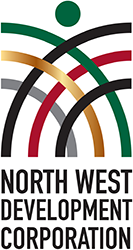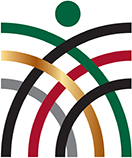The North West Economy
The North West Province is a key economic region in South Africa, driven primarily by the mining sector, particularly platinum production.
In Quarter 1 of 2025, the North West Province economy followed national trends, with mining (particularly platinum group metals) and agriculture providing the main growth impetus.
Mining output improved due to a stabilised electricity supply and higher export volumes in early 2025, while agriculture benefited from favourable weather conditions and increased maize and sunflower yields (NWPG Economic Data, 2025).
In Q2 2025, mining production slowed slightly due to softer global commodity prices, while agricultural exports to neighbouring SADC countries remained strong. Community services and
trade sectors showed modest quarter-on-quarter growth, reflecting sustained
government expenditure and local consumption.
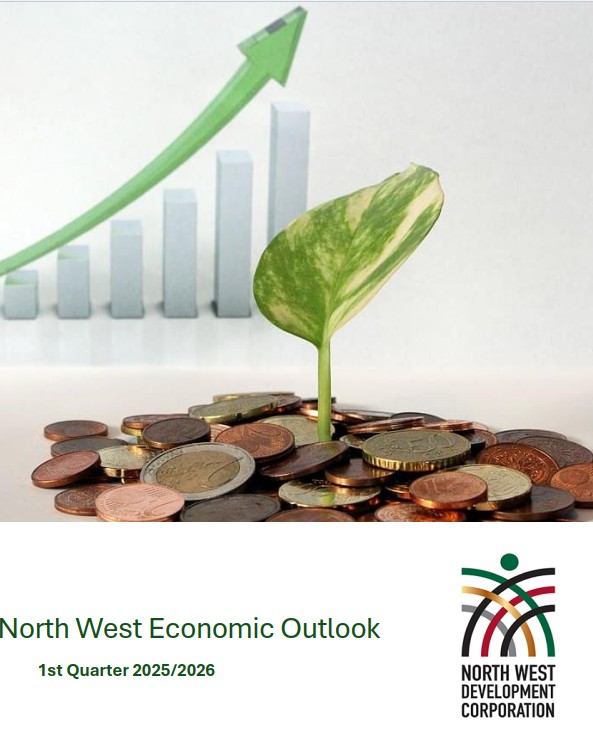
Quick Facts Infographics
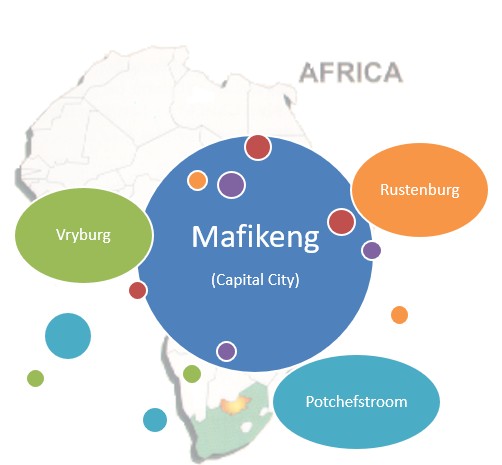
Major towns
Mahikeng is the capital city of the North West. Other major towns include Rustenburg, Potchefstroom, Vryburg and Matlosana.
National ranking
The North West economy was ranked at the 7th largest provincial economy in South Africa, as per 2024 data.
- 6% share of national GDP
- Provincial GDP: R98.6 billion (2023)
- GDP growth rate: 0.1% in Q1:2025
-
(S&P Global, 2024)
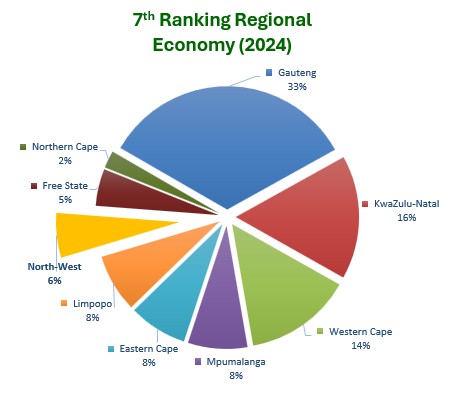
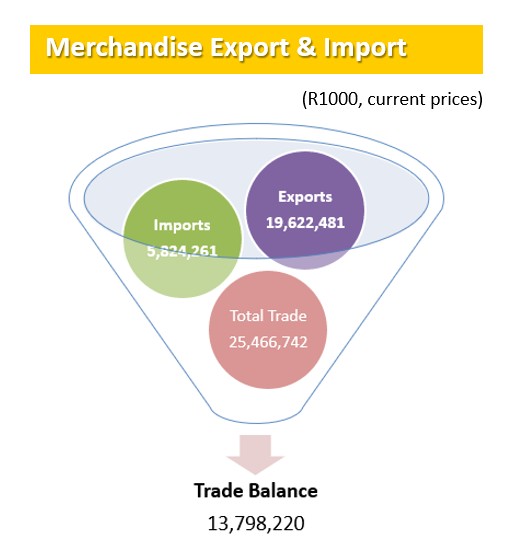
Trade
The funnel on the left indicates that exports from the province were larger than imports, mainly due to the province's large platinum group metals sector.
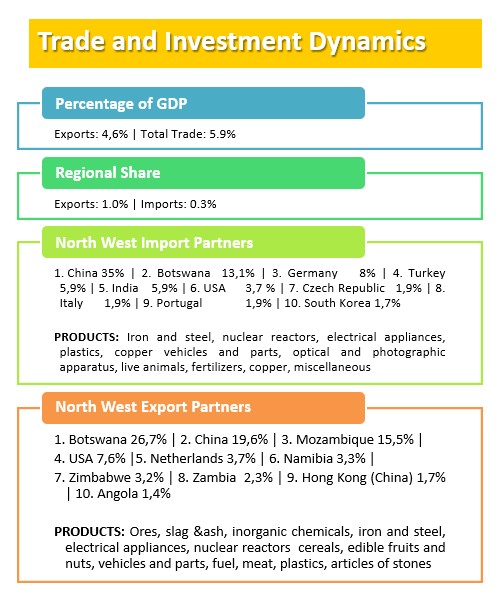
Trade & Investment
North West Exports constitute 4.6% of the GDP. The figure to the left lists the North West's major import and export country partners and products.
Source: South Africa Regional eXplorer v2646. Data compiled on 7 Jul 2025. © 2025 S&P Global
GDP over time
The table to the right tracks the growth of the provincial GDP over time, starting from 2013.
GDP relative to the national GDP fluctuates around 6.1% to 6.3% over the years.
The strongest growth post-2020 was in 2021 (7.1%).
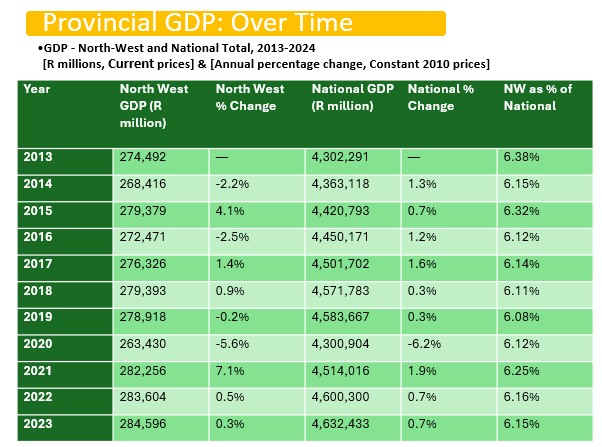
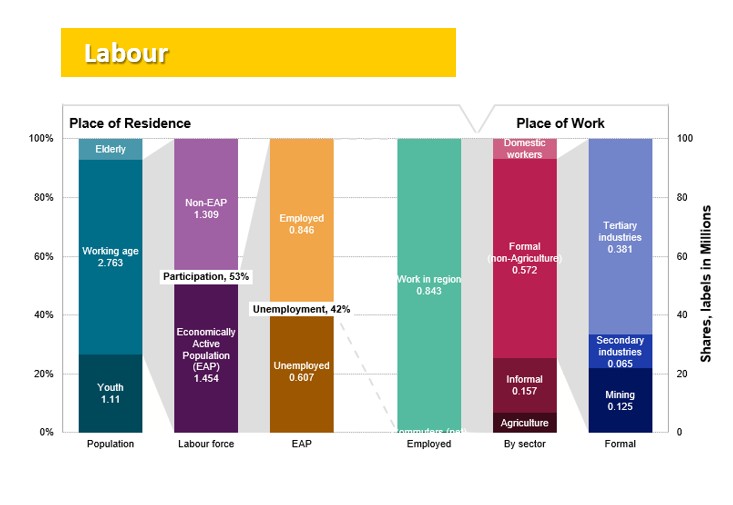
Labourforce
The figure to the left provides a glimpse into the labour force of the province as at the end of 2024.
Source: South Africa Regional eXplorer v2607. Data compiled on 7 July 2025. © 2025 S&P Global.
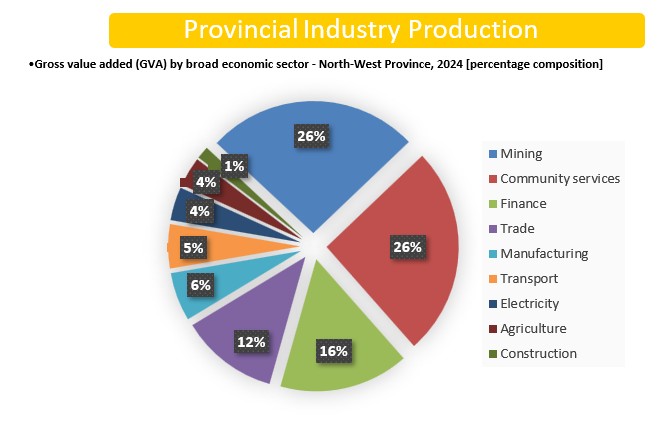
Production per industry
The two largest sectors contributing to the economy of the North West Province is Mining and Services. Each contributed 26% as per 2024 figures.
